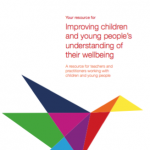Suffering in silence
New research has identified a significant gap in support for parents and carers looking to help young people with their mental health. Tina Woolnough outlines campaign calls designed to make a difference
The impact of parental engagement in education is well documented. We know that involving parents and carers in young people’s learning is likely to positively influence their educational outcomes. But as the curriculum develops, so too must the ways in which we work with young people and their families. As the curriculum focuses on teaching mindfulness and mental health awareness, we need to extend the principles and learning on engagement, parental involvement and support to these new areas.
The poor mental health of our young people is a modern epidemic leaving very few families untouched. Increasingly parents find themselves struggling to identify how or why our young people have become troubled, or where to begin to deal with the pain and distress so many seem to experience.
“Parents are expected to have all the answers. The weight of expectation is huge and I feel like a failure every single day.I have had some help but could do with a lot more to understand what is happening with my daughter and how I can help or reinforce the messaging at home” - Parent
At Connect, we recognise the importance of supporting parental engagement in children’s learning and school lives. Given the enormity and prevalence of this issue, we recently undertook research to establish if the principles of parental engagement extended to shared approaches to mental health, and to identify what we could do to help.
We launched our survey on the support available in schools for children, young people and their families, asking parents whether they felt confident in supporting their child or young person’s mental health. We also asked if schools involved them in the learning about mental health and wellbeing; which programmes schools were using and which lesson plans were being taught.
Then there were questions about personal experiences of mental health struggles, if parents wished to share them. Many did and we appreciate their time, bravery and honesty in sharing their accounts. We heard harrowing descriptions of pain, isolation and an overwhelming sense of not knowing what to do to help children and young people feel better.
Responses came from parents and carers with children ranging in age from newborn to 18, although most were from parents and carers of children between five and 16-years-old. The survey results represented 28 local authority areas.
Of the parents who responded to us, 75% stated they feel ‘only a bit’ or ‘quite’ confident about supporting their child’s mental health.
When asked what would improve their confidence:
- 78% said a clear understanding of who to go to for advice.
- 70% said a whole school community approach with staff, children, parents and families all working together to understand positive mental health, resilience and how to recognise and support mental ill health.
- 68% said being involved in what children learn in school about mental health and wellbeing.
An overwhelming percentage (94%) said they would ‘find it helpful’ if schools involved parents in their programmes. More than half (64%) advised their child’s school had not given them any information about the lessons and activities delivered to children relating to mental health and wellbeing. Amongst those who said they did have information from school (36%), 16 different programmes were cited. This appears to be a crowded field with very little consistency across the country in terms of what parents can expect and what children will be learning.
We want to be clear here that our surveys are a snapshot only. They are not scientific and generally receive a relatively small response (256 in this case). But they do provide an insight into the attitudes and worries of parents in relation to their children and young people’s experience at school.
Education Scotland’s The Compassionate and Connected Classroom, launched in June 2019, is a health and wellbeing teaching resource which contains planned lessons for upper primary children. It recommends sharing a leaflet about the programme with parents but gives no guidance about sharing the content of the programme or joint approaches. There is substantial evidence stressing the importance of parental engagement for positive impact on learning and outcomes. Lessons and education on mental health and wellbeing are no different.
“Schools need to be better at communicating to the parents what they are teaching so we can follow up the discussions at home” - Parent
The majority of parents in our survey do not feel empowered, confident or informed in supporting their child’s mental health. Our survey gives us some real evidence and experiences to act on.
Getting It Right for Every Child expects professionals to work with one another and with families around the child. There should be national guidance and training about mental health for school staff, those in the wider community and families so everyone can gain confidence and play their part.
Schools need to share useful information and approaches to taking care of mental health with parents and carers, as well as provide support and/or signposting when help is required.
Of course, the most important route to positive mental health is for children and young people to understand themselves and to have the tools to take care of their own mental health as well as the confidence to seek help when needed. Resources such as Children in Scotland’s Improving Children and Young People’s Understanding of their Wellbeing provide suggestions for those working with children. Connect believes there should be an equivalent to this for parents and carers, which is actively promoted, so that parents can find it.
Just under half of our respondents said their child had experienced or was experiencing mental health problems, across all ages. Parents and grandparents described anxiety, self-harm, depression, low mood, developmental trauma, body dysmorphia, low self-esteem, bullying, loneliness/isolation, suicidal thoughts, eating disorders, panic attacks, anger, bereavement and social anxiety. Some parents wrote powerfully about their child’s learning difficulties and how their condition – and the way they are supported – impacted on their child’s mental health.
Of these parents, 60% said they had been able to access help and support. This is welcome, but means that four in 10 had been unable to find the services or support they needed.
“It would have been good to have a clear pathway for who to go to and under what circumstances. As a parent, you struggle to decipher what is normal and what is a problem that needs outside help, so better guidance as to what path to follow would be helpful.” – Parent
The overwhelming message we got from our parents is that the inability to access support is causing real despair. “I feel helpless”, “We are still struggling”, and“It took a huge tearful meltdown for staff to finally listen to and believe us” are just some of the comments we received.
Several parents described delays in referrals (and then appointments) with the Child and Adolescent Mental Health Service (CAMHS). This shortage of provision has been well-documented and is being addressed. However, an increase in counselling services for children and young people can’t come soon enough for families in crisis.
Many respondents called for the breaking down of stigma around mental health issues, asking for more open discussions, not just about mental health but the factors that might influence positive or negative mental wellbeing – family, sexuality, race, religion and ones self identity.
One parent said:
“Education about different family types and different sexualities is important to talk about [as well as] talking about racism and the different experiences that kids and adults are subjected to, depending on their identities. Normalising difference is part of supporting kids’ mental health.” - Parent
Parents want to do the best for their children but our research suggests they are not best equipped when it comes to supporting their mental health. The unrealistic expectation that parents have the resources and information for every possible eventuality in their children’s lives needs to be dispelled once and for all. Parents want, need, and are asking for our help. We need to listen.
Tina Woolnough is the Acting Communications Officer at Connect
Click here to read the report in full
Campaign calls
Connect is urging for the dots to be joined as part of a preventative strategy, using what is already know about the positive impact of effective parental engagement.
They are calling for:
- National guidancefor schools to work closely with parents on health and wellbeing and mental health programmes from the early years onwards.
- Clear informationabout positive mental health in schools/nurseries and from the National Health Service, with information on how to recognise when children and young people are struggling.
- Signposting for parents who are concerned and worried about their child or young person about where and who to ask for help.
- Information for parents to enable them to help their child or young person to be aware of their own mental health and that of their friends and how to monitor and take care of themselves and others as well as where to find help.
This article was first published in Children in Scotland magazine, Issue 196. Published in February 2020.

Children in Scotland magazine: Issue 196
Get more content from the current issue of our magazine
Buy the latest issue

The Compassionate Classroom
Education Scotland’s health and wellbeing resource for upper primary
Find out more
Improving understanding of wellbeing
Find out more about our resource for teachers and practitioners
Download hereBook your training today
Our award winning events team run a variety of events designed to enhance knowledge, understanding and professional practice.
View our upcoming events